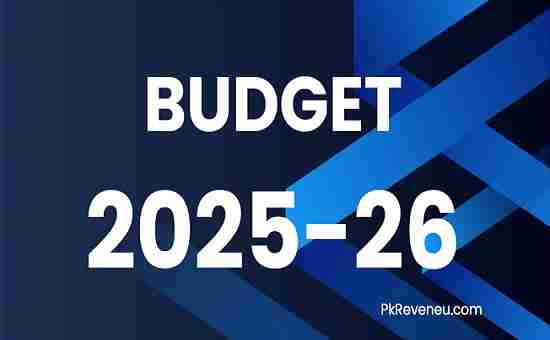Islamabad: The Pakistan Business Council (PBC) has put forth comprehensive policy recommendations for the upcoming budget 2025-26, emphasizing the need for a fully authorized National Tax Authority (NTA).
The PBC has strongly advocated for the separation of tax policy from the Federal Board of Revenue (FBR) and the establishment of the NTA to enhance efficiency and transparency in tax collection.
Among the key recommendations, the PBC has suggested significant reforms in the taxation system, including changes in the super tax regime, gradual reductions in corporate and sales tax rates by one percent per annum, and revisions in tax slabs to account for inflation. It has also proposed measures to ease the tax burden on salaried employees in the upcoming fiscal year.
According to the PBC, it is imperative that tax policy-making be separated from tax collection, ensuring that policymakers include representatives from the ministries of planning, industries, investment, and commerce. This approach will align fiscal policies with broader economic objectives, fostering sustainable economic growth.
One of the most significant recommendations from the PBC is the establishment of a fully functional NTA to serve as a single-window assessment platform for taxpayers. Taxes collected through the NTA should be transferred promptly to federal and provincial authorities based on a predefined and mutually agreed mechanism. This will not only streamline compliance but also reduce administrative burdens and improve the efficiency of tax collection and distribution.
The PBC has also recommended a phased reduction in the super tax rate on non-export profits by two percent annually while ensuring a progressive levy based on income slabs. Additionally, it has suggested mandatory wealth reconciliations for all resident tax return filers and limiting the formal sector’s responsibility to verify tax credentials to only its direct FBR-registered suppliers and customers.
To address tax evasion, the PBC has proposed imposing a 39 percent advance tax on non-filer commercial and industrial customers’ electricity and gas bills, followed by the disconnection of utility services in cases of non-compliance. Furthermore, it has recommended revising the capital gains tax on land sales, with a 39 percent tax on sales within 10 years of purchase and a reduced 15 percent tax rate for holdings exceeding 10 years.
The PBC has also emphasized the need to phase out tax concessions, including those for former tribal areas, and has urged the FBR to establish Electronic Data Interface (EDI) arrangements with major trading partners to curb tax evasion. Additionally, it has suggested reducing the corporate tax rate by one percent annually until it reaches 25 percent, aligning it with other emerging economies, and cutting the General Sales Tax (GST) rate by one percent annually until it reaches 15 percent.
Other policy recommendations include the gradual elimination of minimum turnover tax for listed companies, taxation based on income rather than declared overseas assets, and a reduction in withholding tax (WHT) on exporters from two percent to one percent. The PBC has also called for rationalizing WHT on the services sector and reducing WHT on recyclable materials to create a level playing field with the informal sector.
Furthermore, the PBC has urged the government to exempt listed companies from Section 8B of the Sales Tax Act, 1990, which limits the offset of input tax to 90 percent of output tax. It has recommended lowering the current 50 percent monthly export threshold under Section 8B to 10 percent to improve cash flow and boost exports. The PBC has also proposed restoring Exemption Certificates for quarterly advance income tax payers and harmonizing GST refund processing for zero-rated and non-zero-rated sectors to broaden the export basket.
With these recommendations, the PBC aims to create a more transparent, efficient, and business-friendly tax environment that encourages investment and economic growth in Pakistan.
